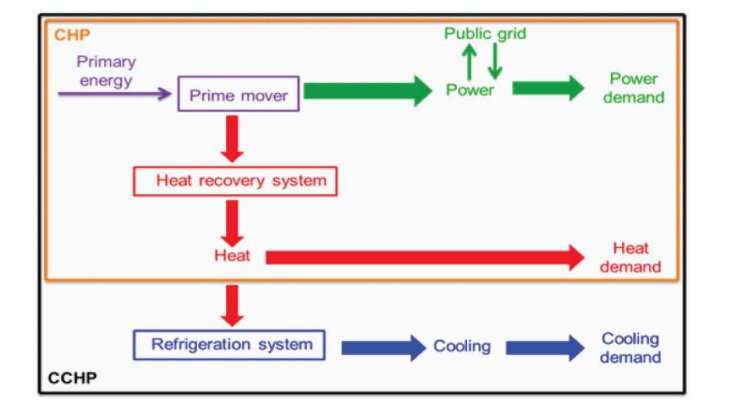Working of trigeneration. Credit: CUECR
Energy consumption has been on the rise globally, despite efforts to increase energy efficiency. With limited resources and negative environmental and social impacts associated with traditional energy production, researchers are exploring new alternatives to meet energy needs.
A new study published in the International Journal of Energy Optimization and Engineering (IJEOE) analyzes the use of a trigeneration system, a technique for producing three useful outputs (electricity, heat, and cooling) simultaneously from one or more energy inputs, which captures waste energy in the production process and reuses it, as a solution for an isolated tropical island. The study compares the traditional energy production systems, which do not include energy recovery, to the trigeneration system with an absorption chiller.
The results of the study indicate that the implementation of a trigeneration system on this isolated, large-scale energy consumption system is both feasible and preferable from an economic standpoint. The trigeneration system not only reduces the consumption of primary energy resources, but also reduces the environmental and social impacts of energy production.
The research highlights the potential for trigeneration systems as a sustainable solution for meeting energy needs in isolated, off-grid locations. As resources and primary energies are limited, and the energy production technologies have environmental and social impacts on production and exploration, this study suggests that trigeneration is a viable alternative to traditional energy production systems.
More information: Nuno Domingues et al, Technical-Economic Feasibility Study of a Tri-Generation System in an Isolated Tropical Island, International Journal of Energy Optimization and Engineering (2022). DOI: 10.4018/IJEOE.309416
Provided by CUECR
























